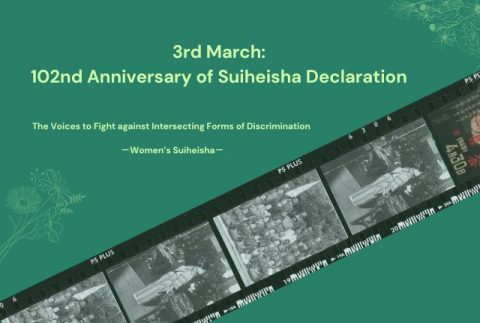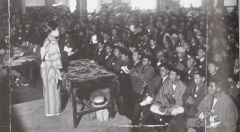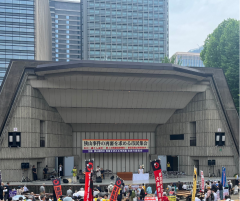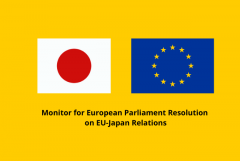3rd March: 102nd Anniversary of Suiheisha Declaration
February 28, 2024

The Voices to Fight against Intersecting Forms of Discrimination
-Women’s Suiheisha-
8th March is the international women’s day to celebrate the achievements of women and to take actions for advancing women’s equality. Although the word, gender equality, is heard more frequently than ever, true gender equality will be realised solely when it is for ‘ALL’ women because women cannot be summed up to one as people have multiple identities. It is minority women whose voices are more silenced and whose rights are more restricted.

[Photo¹: Kodama Women’s Suiheisha meeting held on 1st October 1924]
102 years before, on 3rd March 1922 national Suiheisha was founded declaring the emancipation of Burakumin whose dignity had been deprived of. In the following year, Women’s Suiheisha was established, and women could write the articles in the women’s section of the Suihei Newspaper from June 1924 to October 1924. Its 3rd and 5th issues, articles were contributed by a woman named Kei who was Burakumin. In its 3rd issue Kei described difficulties in living as a Buraku women as following²;
“…. not to mention, women are suffering, first of all, due to being Burakumin (being held in far greater contempt than men); secondly, due to the lack of freedom of life (especially for Burakumin, who are deprived of the freedom of occupation and are thus usually economically exploited); and the last but not least, due to being women (this is not limited to Buraku women but women in general are treated more like slaves than men). However, those are not the laws of nature that people have no control over, but the morals that human beings have invented to dominate over others and the wrong conventions that are long-standing ….” (Suihei Newspaper 3rd issue)
This statement clearly illustrates intersecting forms of discrimination against Buraku women based on gender and Buraku status. Burakumin were discriminated against in different terrains such as occupational, residential, and so forth. Moreover, patriarchal ideas with a male-dominated family system exacerbated women’s situation because of their gender. Thus, it was Buraku women who experienced greater marginalisation among both Burakumin and women.
Yet it is worth noting that Buraku women voiced up, expressing their situation as ‘double or triple oppression’, which symbolised their experiences. The contribution mentioned above was one of them. They spoke up for themselves and took actions to change society, resisting ingrained gender norms and practices since such discrimination is a product of human beings.

[Photo: Haru Nishida promoting the foundation of Women’s Suiheisha]
Both Buraku and gender issues remain in contemporary Japan. In 2016, CEDAW pointed out that there were intersecting forms of discrimination against women of minority groups, such as Buraku. Yet, the debate around intersecting forms of discrimination seems not to be sufficient. There are many forms of intersectionality, among others, race, ethnicity, age, nationality, gender, and migrant status. Recognising intersectionality is necessary to notice multiple subjectivities oneself has and therefore realise a pluriverse world.
For that, we need to listen to the voices of minority women and deal with issues WITH them. Next few articles feature the voices of minority women.
▼Read full text of Suiheisha Declaration
https://imadr.net/wordpress/wp-content/uploads/2019/12/SuiheishaDeclaration-English.pdf
▼Watch the video of Suiheisha Declaration
https://www.youtube.com/@IMADRCHANNEL or https://imadr.org/activity/dalits-buraku/
¹ All photos used in this articles is cited from “Photo Records: History of Buraku Liberation Movement-100 years of foundation of national Suiheisha (写真記録:部落解放運動史-全国水平社創立100年)”, edited by Central Headquarter of Buraku Liberation League. Liberation Publishing Company.
² Translated by the author based on Chikako Miyamae. (2022). “To combat invisibility-What did Buraku women try to tell 100 years ago? (不可視化に抗するために-100年前の部落女性は何を伝えようとしたのか?).” IMADR report no. 211 (August 2022).
If you would like to know more, please also see: Ibid. no. 212 (December 2022) and Ibid. no. 213 (February 2023).
³ CEDAW/C/JPN/CO/7-8




